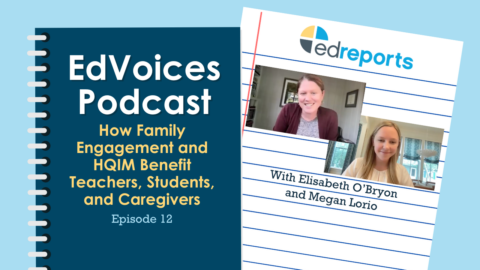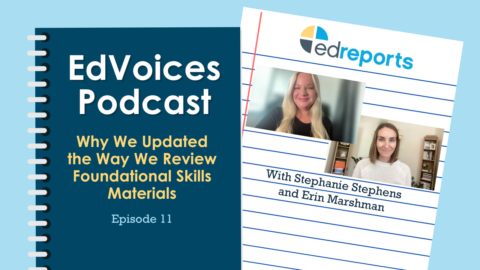High-Quality Materials Empower and Support Teachers
High school English teacher Jodi Hufendick discusses the importance of teacher voice in the EdReports review process and why educator reviews are so vital to student learning.
Related Resources
Watch: How Family Engagement and HQIM Benefit Teachers, Students, and Caregivers
Megan Lorio and Elisabeth O’Bryon of Family Engagement Lab share tips and insights on how districts, teachers, and caregivers can unite around high-quality materials to help every student thrive.
EdReports to Expand Its Free Reviews to Pre-K Curriculum
Learn about EdReports' plans to review pre-K curriculum and provide free, "by-educator" reports to help preschool teachers get the materials they deserve.
Watch: Why We Updated the Way We Review Foundational Skills Materials
Early literacy educators Stephanie Stephens and Erin Marshman dive into updates to EdReports foundational skills review tools, what the field can learn from our recent report releases, and why quality materials are so crucial for students learning to read.


